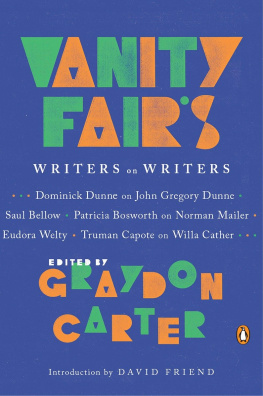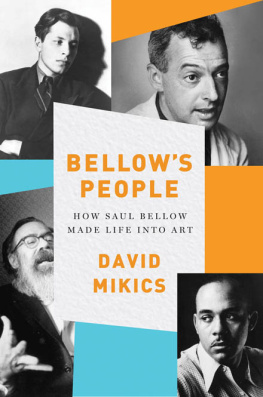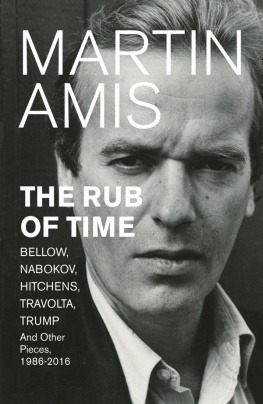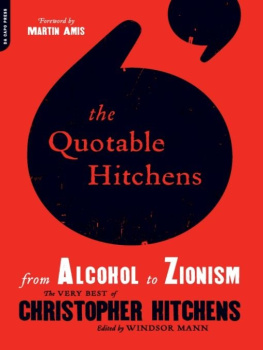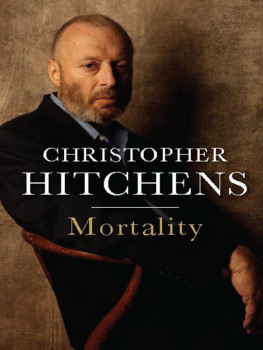ALSO FROM VANITY FAIR
Vanity Fairs Hollywood
Oscar Night: 75 Years of Hollywood Parties
Vanity Fair The Portraits
Vanity Fairs Tales of Hollywood
Vanity Fairs Proust Questionnaire
Vanity Fairs Presidential Profiles
The Great Hangover: 21 Tales of the New Recession
Vanity Fair 100 Years
Bohemians, Bootleggers, Flappers, and Swells: The Best of Early Vanity Fair
PENGUIN BOOKS
An imprint of Penguin Random House LLC
375 Hudson Street
New York, New York 10014
penguin.com
Copyright 2016 by Cond Nast
Penguin supports copyright. Copyright fuels creativity, encourages diverse voices, promotes free speech, and creates a vibrant culture. Thank you for buying an authorized edition of this book and for complying with copyright laws by not reproducing, scanning, or distributing any part of it in any form without permission. You are supporting writers and allowing Penguin to continue to publish books for every reader.
All works in this collection were previously published in Vanity Fair or on vanityfair.com. The following essays are reprinted by permission:
Rendezvous with Rushdie by Martin Amis, originally published in Vanity Fair. Copyright 1990 by Martin Amis, used by permission of The Wylie Agency LLC.
Efforts of Affection: A Memoir of Marianne Moore from Prose by Elizabeth Bishop. Copyright 2011 by The Alice H. Methfessel Trust. Editors Note and compilation copyright 2011 by Lloyd Schwartz. Reprinted by permission of Farrar, Straus and Giroux, LLC.
A Passion of Poets by Joseph Brodsky, originally published in Vanity Fair. Copyright 1983 by Joseph Brodsky, used by permission of The Wylie Agency LLC.
A Visit to the Masters School from E. E. Cummings: A Life by Susan Cheever, copyright 2014 by Susan Cheever. Used by permission of Pantheon Books, an imprint of the Knopf Doubleday Publishing Group, a division of Penguin Random House LLC. All rights reserved.
At the Ali Baba Caf. Copyright 1989 by Christopher Dickey.
Bosom Buddies from Laura Z: The Early Years. Copyright 1983 by Laura Z. Hobson.
Paul Bowles in Exile. This article was originally published in the September 1985 issue of Vanity Fair. Copyright 1985 by Jay McInerney.
Darkness Visible. Copyright 1989 by William Styron. Permission granted on behalf of the estate of William C. Styron by InkWell Management as agent for the estate.
Reynolds Price: Duke of Writers. Copyright 1986 by Anne Tyler.
In Memory of W. B. Yeats, September 1, 1939, and Rimbaud, copyright 1940 and renewed 1968 by W. H. Auden; The Shield of Achilles, copyright 1952 by W. H. Auden and renewed 1980 by The Estate of W. H. Auden; The More Loving One, copyright 1957 by W. H. Auden and renewed 1985 by The Estate of W. H. Auden; The Fall of Rome, copyright 1947 by W. H. Auden and renewed 1975 by The Estate of W. H. Auden; No Change of Place, copyright 1934 and renewed 1962 by W. H. Auden; The Sea and the Mirror, copyright 1944 and renewed 1972 by W. H. Auden; and Homage to Clio from W. H. Auden Collected Poems by W. H. Auden, copyright 1976 by Edward Mendelson, William Meredith, and Monroe K. Spears, Executors of the Estate of W. H. Auden. Used by permission of Random House, an imprint and division of Penguin Random House LLC. All rights reserved.
Excerpted from Remembering Willa Cather, by Truman Capote. 2006 by The Truman Capote Literary Trust, with whose kind permission it is published.
ISBN 9781101993019
Cover design: Colin Webber
Version_1
CONTENTS
INTRODUCTION
I NK IN O UR V EINS
By David Friend
Literature runs in Vanity Fairs veins.
Vanity Fair, for starters, was the name of a fictional festival in John Bunyans The Pilgrims Progress (1678), a nonstop, year-round debauch that attracted hedonistic rascals and swells. (Bunyan took a dim view of all this.) One hundred and seventy years later, William Makepeace Thackeray adopted the term as the title of his most famous novel, which satirized social climbers in Victorian England. When Vanity Fairthe American magazinecame along in 1914 it was immediately a hothouse for literary talent, and among the first people hired by its fabled first editor, Frank Crowninshield, were writers destined for prominent careers. There was P. G. Wodehouse, V.F.s theater critic and most prolific columnist. And Dorothy Parker (), who wrote everything from poetry to famously scathing reviews of Broadway plays. And her pal Robert Benchley, who served as an editor while polishing his chops as a humorist.
For twenty-two yearsuntil Vanity Fair suspended publicationmany of the finest writers of the day walked the magazines corridors (first on West 44th Street, and then in the Graybar Building, next to Grand Central Station). Frequent contributors included Alexander Woollcott and Sherwood Anderson, Aldous Huxley and Edna St. Vincent Millay, Colette and D. H. Lawrence, Paul Gallico and Janet Flanner. Nol Coward sold his first work in America (a short satire) to V.F.at the age of twenty-one. A. A. Milne gained international renown when the magazine ran his first childrens poem, Vespers. Not a half-bad bunch.
In 1936, the magazine, a casualty of the Depression, went on a hiatusfor five decades. But when it was relaunched, in 1983, its foundersCond Nast chairman S. I. Newhouse, Jr., and editorial director Alexander Libermanset a high bar for serious prose. Vanity Fairs inaugural editor, Richard Locke, was brought over from The New York Times Book Review. His successor, Leo Lerman, was a swami of high culture who had a Rolodex like a Ferris wheel. In succession, Locke and Lerman commissioned stories from writers of every ilk: Gore Vidal and Gloria Emerson, Carlos Fuentes and Paul Theroux, Jan Morris and Robert Stone. Covers featured Philip Roth, Susan Sontag, and Italo Calvino. And as the decade progressed, editor Tina Brown brought on contributors such as Martin Amis (pages ).

G raydon Carter arrived as Vanity Fairs editor in 1992, intent on broadening the magazines literary and journalistic footprint. On his watch, Vanity Fair has continued to publish many of the most compelling voices in American letters. Sometimes we cover the back stories: the making of classic books. At other times we focus on the craft of writing or on the publishing trade in the digital age or on messy literary feuds and scandals. And with regularity, as this collection makes plain, we assign writers to explore the life and work of other wordsmiths, from novelists to poets to correspondents to mandarins of the publishing world, knowing, in our bones, that the life of every storyteller brims with revelatory talesand guided by a common-sense rule often attributed to Mark Twain: Write what you know.
Herein, then, are the best pieces

